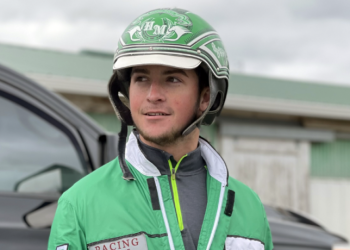Four men arrested March 9 as part of the federal government's racehorse doping investigation pleaded not guilty on Tuesday in a telephonic arraignment conducted by District Court Judge P. Kevin Castel for the Southern District of New York. The defendants waived their right to physically appear in court because of the coronavirus (COVID-19) pandemic.
Veterinarian Louis Grasso, veterinary supply distributor Donato Poliseno, standardbred trainer Thomas Guido III and assistant trainer Conor Flynn all entered pleas of not guilty to a single count of drug adulteration and misbranding conspiracy and their next appearance before the court is scheduled for Oct. 2 at 11 a.m. ET.
Assistant U.S. Attorney Sarah Mortazavi said the prosecution needed six months to complete the discovery process that includes reports and records detailing purchases of controlled substances, documents obtained by subpoena from various pharmacies and the search of 13 computers, seven cell phones and two hard drives confiscated at the time of the arrests.
Mortazavi told Castel discovery included “multiple terabytes” of digital records and that there were staffing constraints resulting from COVID-19.
The letter goes on to describe seized materials that include “documents, photographs and inventories (reflecting, among other things PEDs), seized from premises belonging to defendants Poliseno and Grasso, respectively, and from premises at which defendants Grasso and Flynn, among other individuals, administered PEDs to racehorses under their care and control.”
The prosecution was granted a protective order from the court identifying some of the discovery as “sensitive disclosure material” because it “contains information that identifies, or could lead to the identification of, witnesses who may be subject to intimidation or obstruction.”
The indictment charges Grasso with supplying “adulterated and misbranded PEDs to horse trainers across the United States. … Those adulterated and mislabeled PEDs included snake venom, sulker, a 'pain shot,' 'Bronk,' and 'Red Acid,” among other drugs.”
Poliseno, who in the past has owned, trained or driven standardbreds, including in some of the sport's biggest events, was described in the indictment as the owner of a veterinary supply business in Delaware that purchased PEDs from Grasso and “recruited Grasso for the purpose of using Grasso's veterinary license” to obtain PEDs.
“Often, the co-conspirators submitted or directed others to submit prescriptions to pharmacies under the names and patient files of canine patients, in order to disguise the fact that the PEDs, including Epogen and other prescription blood builders, were in fact being obtained for illicit administration to racehorses,” the indictment states.
It alleges Grasso submitted false prescription information for drugs containing blood builders at over 10 pharmacies in seven states.
The indictment cites two conversations between Grasso and Guido in which Guido allegedly requested 4,000 units of “epo.”
According to the indictment, the federal Food, Drug and Cosmetic Act and related regulations say a drug may be considered “misbranded” or “adulterated” for several reasons, including
“(1) if a drug does not have requisite approvals from the FDA for use in an animal;
(2) if a drug requiring a prescription is administered without a valid prescription, that is, not in the usual course of a veterinarian's professional practice, or not administered pursuant to any prescription at all;
(3) if a drug's label is deficient in various specified respects, for example, if it is false or misleading or does not accurately list details regarding the manufacturer, packer, or distributor, the contests of the packaging, or directions for use; or
(4) if the facility that manufactures the drug is not duly registered by the FDA.”
Grasso is represented by attorney Glenn A. Garber; Poliseno by Zachary Margulis-Ohnuma; Guido by Sabrina Shroff; and Flynn by Andrew Mollica.
by Ray Paulick

 USA
USA Canada
Canada Australia
Australia New Zealand
New Zealand Europe
Europe UK / IRE
UK / IRE


